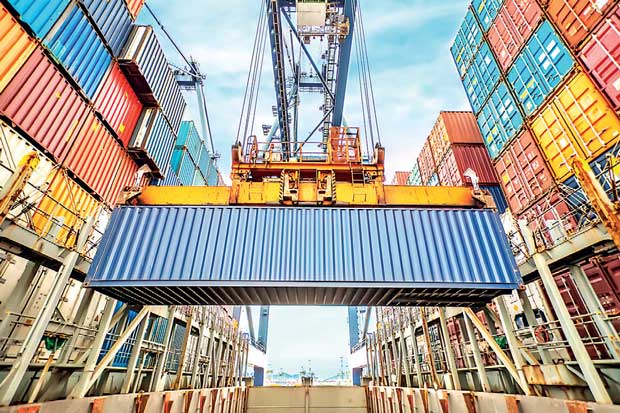29 Jan 2018 - {{hitsCtrl.values.hits}}

By Chandeepa Wettasinghe
An information asymmetry enjoyed by container yards and shipping lines related to the quality of containers may have contributed to the recent tea export crisis to Russia, and the relevant data must be made available to other stakeholders in the supply chain, shipping industry experts said recently.
At the recent Tea Supply Chain Forum organized by the Shippers’ Academy Colombo, Sri Lanka Tea Board Chairman Rohan Pethiyagoda said that the larvae of the khapra beetle which had been in the container of tea sent to Russia was present in the container from a former shipment of grain such as rice from another country.
Russia had banned tea exports for several days, and even now, following the removal of the ban, tea exports are not being cleared in Russia, according to Tea Exporters Association Chairman Jayantha Karunaratne.
Shippers’ Academy Colombo CEO Rohan Masakorala said that the parties responsible for providing clean containers are not taking their responsibilities seriously.
“Our exporters complain that there are bad containers, substandard containers; leaking and damaged, and sometimes the service providers responsible for this are kind of cold about it and brush themselves away from responsibility,” he said.
Sri Lanka Freight Forwarders Association Vice Chairman Roshan Silva said that container yards classify each container entering their yards into A, B and C grades, where A-grade containers are food safe, while B-grade containers are used to send quality products such as apparel, and C-grade for shipments of lower cost products such as coir.
“This information is communicated to shipping lines and it’s not available to us or exporters. We have asked them to grant us this visibility, but so far the answer that we have gotten from the lines is that these are information which they cannot release to the exporters or the forwarders. If this visibility can be created, then we know,” he said.
Silva suggested that the government and exporters push for the shipping lines and yards to release this information through a digital platform that is accessible for all stakeholders.
Masakorala added that the government could request the Ceylon Association of Shipping Agents too to ensure that good quality containers are provided, and that the government should play a part in monitoring the process of container grading and supply.
“Otherwise they (container service providers) will think no one is checking on them and things like dried fish (karawala) come from Pakistan and they hardly clean it and send for the next voyage,” Masakorala said.
Currently, there are professional companies which fumigate containers responsibly, and survey containers for quality, but such services are expensive, said Silva.
20 Nov 2024 1 hours ago
20 Nov 2024 2 hours ago
20 Nov 2024 2 hours ago
20 Nov 2024 2 hours ago
20 Nov 2024 2 hours ago